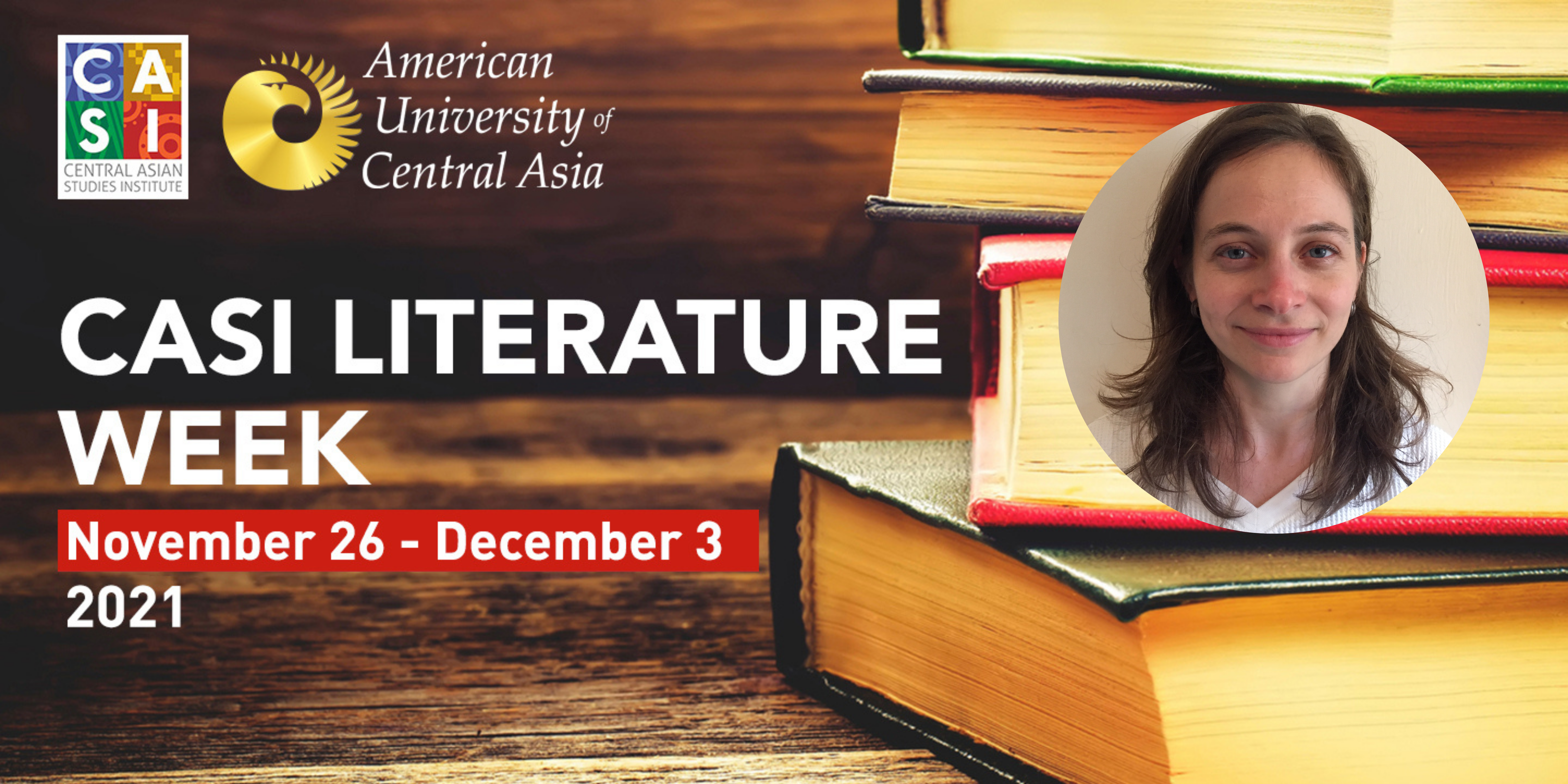CASI Literature Week: "Minor Literatures and Intra-Soviet Translations: Davlat Khudonazarov's Nisso", Dec 1, 12:00
November 30, 2021

Literature Week is a part of CASI’s Workshop on Literature and History. Supported by a generous contribution from Matthew Nimetz, the aim of the workshop is to create a community of junior scholars and advanced graduate students committed to studying literature and to applying literary tools and methodologies to the study of literary art in the Central Asian past.
"Minor Literatures and Intra-Soviet Translations: Davlat Khudonazarov's Nisso"
SPEAKER: Emily Laskin, New York University
Date: December 1,
Time: 12:00
Venue: AUCA, CH1
Zoom link: https://zoom.us/j/92163709677?pwd=VlovL2loRlNRREtCUFBsV0VMU01XQT09
Passcode: 519551
Abstract: This talk is a case study in "world literature" focusing on two related texts: Pavel Luknitsky’s Russian novel Nisso, written during the second world war and published in 1963; and Davlat Khudonazarov’s 1979 Tajik film by the same name. While the two versions of Nisso ostensibly tell the same story of the childhood and marriage of the heroine, Nisso, but the Tajik adaptation makes several important changes to the Russian original. The most striking of these changes is linguistic—while the novel was written in Russian (and subsequently translated into nearly a dozen Soviet and other languages), all of the characters in Khudonazarov’s film, including a Russian Red Army soldier, speak Shughni, a Pamiri language, a so-called “minor” language even within Soviet Tajikistan. The film also differs from the novel in its representation of Pamiri culture--where the novel simply condemns local customs as "backward," Khudonazarov's film dwells on what it means to be a minority within the Soviet Union. This talk thinks through the significance of those differences, and in particular pays attention to the adaptations that were necessary to make a Soviet text (Luknitsky’s) into a Soviet Central Asian text (Khudonazarov’s).
Bio: Dr. Laskin specializes in the literature of Central Asia, working extensively in Russian and Persian. Her current book project, No Man’s Land: The Geopoetics of Modern Central Asia, focuses on the literature of the so-called Great Game, the Russo-British rivalry for influence in Central Asia, putting Russian and British imperial writing on Central Asia in dialogue with contemporaneous Persian literature published across the region, from Kabul, to Bukhara, to Istanbul. Laskin’s recent work on the literature of the Great Game appears in Novel: A Forum on Fiction, and she is an editor of the forthcoming volume Tulips in Bloom: An Anthology of Modern Central Asian Literature. She received her Ph.D. in 2021 in Comparative Literature at the University of California, Berkeley, and also holds an M.A. in Russian, East European, and Eurasian Studies from Columbia University. Her doctoral dissertation was supported by a Mellon/ACLS fellowship and a Berkeley Dean’s Fund grant for archival research in Moscow and St. Petersburg..
This is a hybrid event. All AUCA faculty and students are welcome to join Literature Week in person. Those external to AUCA are welcome to join via Zoom.
In person participants are required to wear masks and follow AUCA’s Covid protocols and social distancing requirements.
